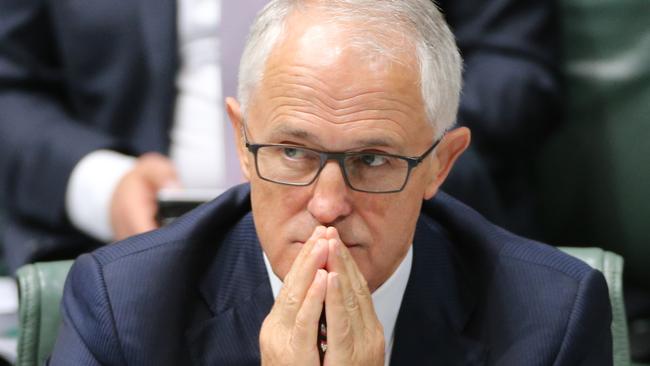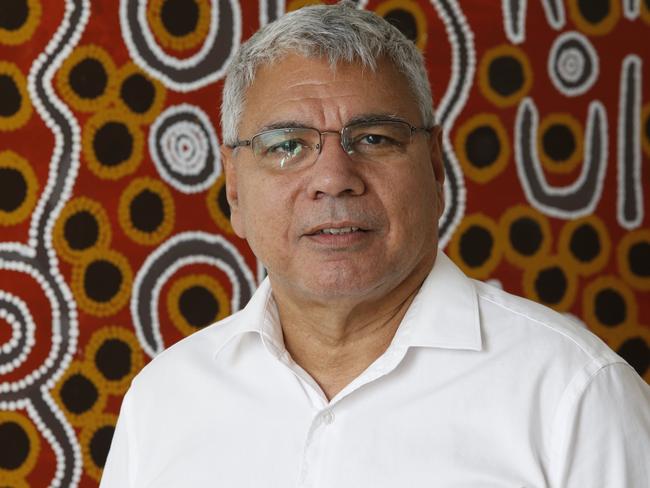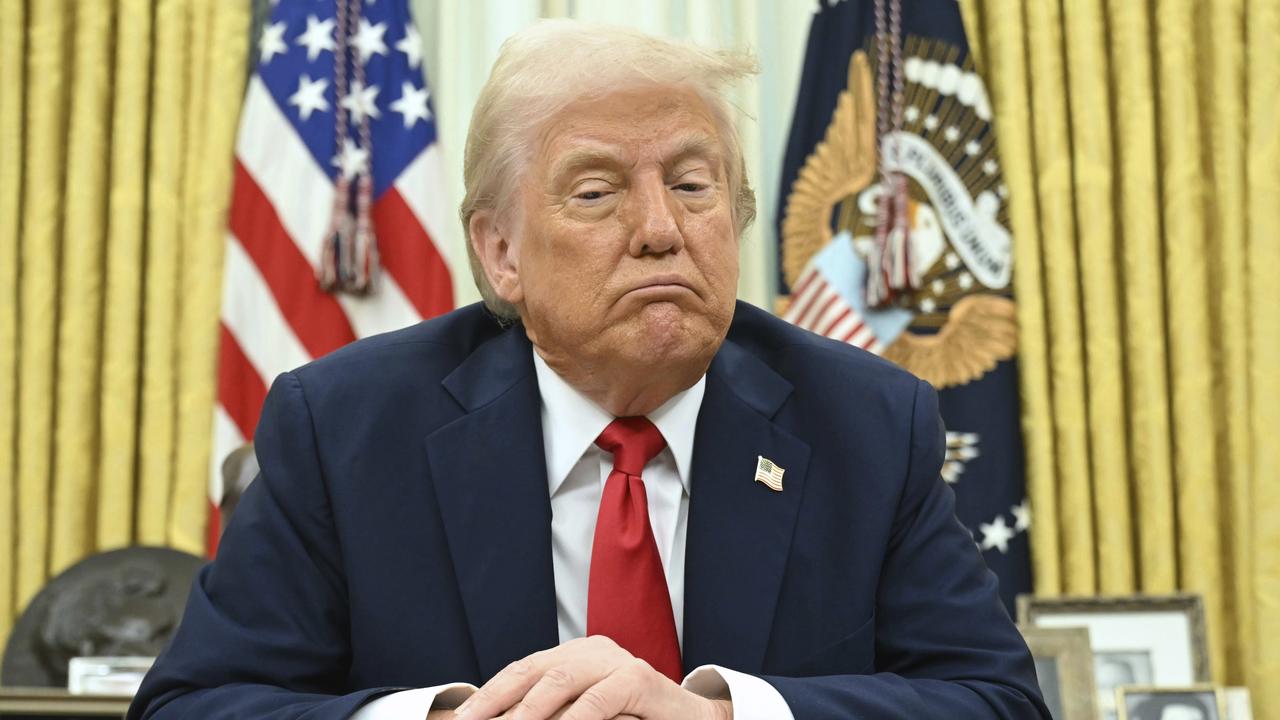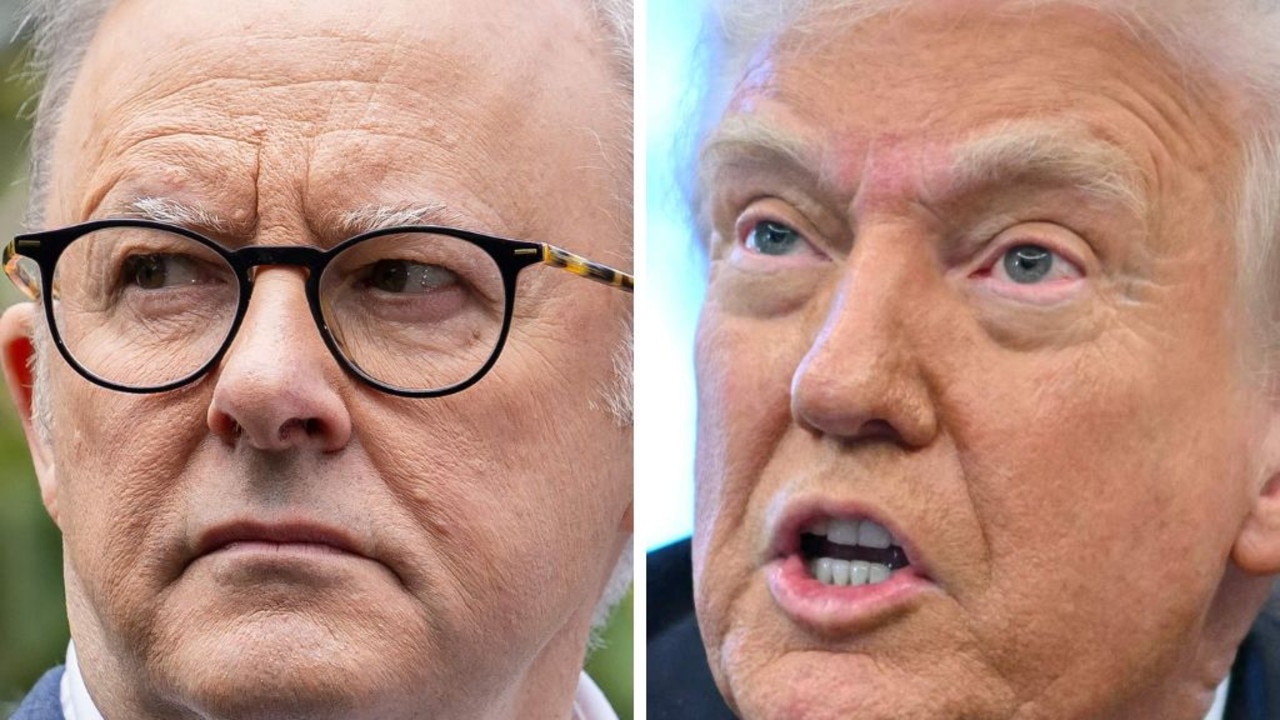Prime Minister’s secret briefing on radical plan
LAST month, Malcolm Turnbull was sent a secret document. It outlined a simple but radical plan to fix one of the toughest problems facing Australia.

IT’S the question that hangs like a shadow over our nation’s heart: What does the government have to do to end the chronic disadvantage of the First Australians?
Now the nation’s top Indigenous advisor has given the answer in his final brief to the Prime Minister: Nothing.
It is a plan as radical as it is simple. Instead of the government trying to rescue Aboriginal people, it needs to get out of the way.
Crazy, I know. But before we get to the solution let’s take a look at the problem.
Firstly, “gap” is too white-bread a word. Indigenous and non-Indigenous Australians are almost living in two different countries. Hell, we’re almost in two different worlds.
Here are some facts:
* Indigenous women are more than 30 times more likely than non-Indigenous women to end up in hospital because of domestic violence — Australian Institute of Health and Welfare
* Homicides in the Indigenous community are five times the rate for other Australians — Australian Institute of Criminology
* Indigenous people are more than 10 times more likely to end up in jail — Australian Bureau of Statistics
* Fewer than half the country’s working age Indigenous Australians have a job: 48.4 per cent, compared to 72.6 per cent — Closing the Gap report
* Indigenous men die from alcohol-related causes at five times the rate of non-Indigenous men and women at six times — Department of Prime Minister and Cabinet
* Four out of 10 Aboriginal people are smokers and 57 per cent of Indigenous children live in a household with a smoker — Department of Health
If that wasn’t depressing enough, Aboriginal people are still dying 10 years earlier than non-Aboriginal people on average. And get this: According to the latest “Closing the Gap” report that gap could actually widen because non-Indigenous Australians keep living longer but they’re not so optimistic about the other lot. The report described it as “challenging” — a recurring theme.
That’s not just a gap, it’s a national shame. Indeed, the Closing the Gap report could not be more ironically named. This year it found we had failed to meet the targets in six out of its seven nominated areas.
That’s not just a national shame, it’s a national embarrassment.
The man once charged with trying to fix this problem, the chair of the Prime Minister’s Indigenous Advisory Council, Warren Mundine, has famously butted heads with the PM and had his position dissolved — along with much of the council.
What the public doesn’t know is that Mundine effectively sacked himself.
Just before his term was due to expire last month, he sent the PM a private briefing paper recommending the entire council be replaced by a five-person body that would have six months to come up with a strategy focused entirely on economic development.
In other words, business, growth, jobs. Not pointless positions created for the sake of creating positions but real jobs with real value because real work was there to be done.
This is, after all, how the rest of society operates. Almost 90 per cent of Australians are employed by the private sector. For most of us it is our jobs that keep us out of poverty, not government benevolence — although, let’s face it, there’s a bit of that too.
And the evidence, everywhere, is both obvious and overwhelming. Where you have jobs, you have better income, better education, better health, better lives.

Mundine also looked to the rest of the world. In his memorandum to Malcolm Turnbull, dated 13 December 2016, he noted that between 1990 and 2010 the number of people in the world living in extreme poverty halved, with one billion souls liberated. This, he realised, was driven not by the UN but by economic reform and growth.
“Indigenous communities will be no different,” he wrote.
“The only way we’ll see poverty and disadvantage reduce, and ultimately eliminated, is through commercial activity and economic development … This can only happen through commerce and private enterprise.”
Of course he does not propose that the government literally do nothing. Obviously it must still provide services and a safety net but perhaps its most vital role is facilitating an environment in which individuals can flourish in Indigenous communities: Giving jobs to locals instead of out-of-town service providers, nurturing small start-up businesses, opening connections to regional operations such as mines and farms and allowing Indigenous people to fully capitalise on and benefit from the lands and waterways they own.
But, he warns the PM, a great deal of what government is doing is not only failing to solve the problem but distracting from what it takes to succeed.
“A huge amount of time and energy is directed to things that don’t drive commercial activities or sustainable employment — like welfare, government services and grants because these make up such a huge part of government spending on Indigenous people,” Mundine writes.
“Any Indigenous advocacy or advisory group that is asked to advise on Indigenous policy as a whole inevitably must divide their attention between economic strategy, underpinned by commerce, private enterprise and genuine self-sufficiency — and that which is the opposite.”
He then actually underlines the memo’s final sentence: “I therefore believe the Prime Minister should have an advisory body uniquely focussed on economic issues.”
Mundine formally recommends transforming the Indigenous Advisory Council into a much smaller “Indigenous Economic Strategy Council” with a strict six-month time limit to come up with a jobs and business plan.
He then provides terms of reference for the new council, with a focus on creating Indigenous businesses and jobs, improving education rates, encouraging investment and eliminating barriers to private ownership as well as personal and community responsibility.
In short, a small, lean and deadline-driven approach to fix a problem that decades of big well-meaning government paternalism has not.
It is a plan that seems to cut like a sabre through the red tape, hand-wringing, grandstanding and naysaying that all too often strangles action on Indigenous issues. Even Mundine himself seemed battle-weary when I called him and he didn’t want to comment.
Whether it will be attempted, only the PM knows. Whether it will be a success, only God does. The only thing we do know is that whatever we are doing now has failed.
In circumstances such as these, the crazy option isn’t to try something radically different. The crazy option would be not to.




